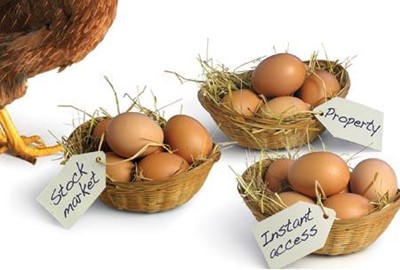
The COVID-19 pandemic has been wreaking havoc around the world, claiming the lives of many and forcing survivors in an economic crisis. As a result, many persons have lost their jobs and source of livelihood and are struggling to meet their daily needs. It is times like these that we realize how fleeting money is and lack of proper management can leave us exposed and vulnerable.
There has been a myriad of books published on personal finance, however, there is one book that is packed with much sound advice about money and is far more popular than any other book - the Bible. Let us look at some biblical views as it relates to money matters and how this wonderful historical text which is profoundly relevant in our modern society, can be our guide to financial freedom.

"Prepare your outside work, make it fit for yourself in the field; afterward build your house." - Proverbs 24:27
In this scripture from Proverbs, we can see the organizing of activities. It suggests that we should prioritize the fundamental activities. The field referred to in the scripture isn't just something you need for survival, it is a means for survival. Therefore, if you're a farmer, your crops are your source of living and if your field is not properly prepared and planted, there will be no harvest for the building of your house and providing for your other needs. You may not be a farmer or have a field but each person has certain basic needs that must be met to survive, so the "field" is a form of gainful employment. A source of income is paramount because what good is there in having a big house with no means to put food on the table, or pay the rent or mortgage?
So this proverb means that you need to prioritize your time and efforts in order to earn and have a constant stream of income.

"For which of you intending to build a tower, does not sit down first and count the cost, whether he has enough to finish it - lest, after he has laid the foundation, and is not able to finish, all who see it begin to mock him, saying, 'This man began to build and was not able to finish'?" -Luke 14:28-30
These verses speak to budgeting. It is important to count the cost of the necessities first, estimate the cost for the expenses that may come up along the way, and make a budget. Some expenses come up daily, for example, transportation, food, etc., while others are due monthly, quarterly, or even annually. Planning and saving for those periodic expenses is the prime function of budgeting.
Therefore, suppose your income is $10,000 weekly. You spend $3,000 on food, $1,500 on transport, and $3,500 for the electricity bill that just became due. At this point, it seems you have all your expenses for the week covered and the remaining $2,000 is free to spend as you please. However, if you spend all the balance each week then you're in for trouble when your $12,000 rent is due at month-end. Budgeting is a tool that gives you a full view of all your expenses so you can determine how much money you need to set aside to cover your financial needs - from the daily expenses to funding your retirement.
Set aside money to pay all the bills before you spend any on non-essentials - as the saying goes, "put your basket where you can reach it" and live within your means.

"Let Pharaoh do this, and let him appoint officers over the land, to collect one-fifth of the produce of the land of Egypt in the seven plentiful years. And let them gather all the food of those good years that are coming, and store up the grain under the authority of Pharaoh, and let them keep food in the cities. Then that food should be as a reserve for the land for the seven years of famine which shall be in the land of Egypt, that the land may not perish during the famine." - Genesis 41:34-36
One thing is sure in life is that there will be ups and downs, times of plenty, and seasons scarcity. The important thing, however, is managing resources in such a way that even in periods of drought, whether it be a job loss, health situation, or other unforeseen crisis, you can still at the very least - get by. This passage from Genesis spoke about how Joseph interpreted a dream the Pharaoh had about seven fat cows grazing by a river that got swallowed up by seven skinny cows. Joseph explained that the seven fat cows in the dream represented seven years of prosperity for Egypt, but it will be followed by seven years of famine. To plan for this disaster, Joseph advised the Pharaoh to store up grain during the seven good years and use that stored grain to get the country through the seven hard years to follow.
The fundamental lesson is to set aside money for future emergencies. In most cases, it is recommended that you have at least 6 months of living expenses in an emergency fund with quick access so you can withdraw money when you need it. This should be separate from other savings and investments.

"The rich rules over the poor, and the borrower is servant to the lender." - Proverbs 22:7
It doesn't get any clearer than this. The proverb defines debt as a form of slavery where you are bound by the terms of the debt. In my culture, the older folks used to say "If you can't buy it cash, you cannot afford it".
I can remember a time when I was covered in debt because of student loans and it affected me mentally, physically, financially - I mean, it seemed insurmountable. I had to make a conscious decision to map out a plan to pay it off and maintain the discipline to execute it. Whew, it wasn't easy but a few years later, by the grace of God, I did it.
Some purchases may require taking a loan, for example, getting a mortgage for a home. However, in our modern societies, some people even take out loans for luxuries and live in a cycle of debt. As a result, there are a lot of people today suffering under the weight of debt sometimes to the expense of their family, their health, and their life.

"Invest in seven ventures, yes, in eight; you do not know what disaster may come upon the land." - Ecclesiastes 11:2
Have you ever heard the saying, "Don't put all your eggs in one basket."? Well, this scripture from Ecclesiastes is a short, clear explanation of why it makes sense to diversify your investments. Due to life's uncertainties, any venture or investment is subject to the possibility of a loss. So it is only wise to put money into different types of investments so that a single disaster doesn't wipe you out at once.
Some may argue that spreading your resources reduces your return and putting all your eggs in the 'right' basket will allow for a greater return. But when we refer to the basic principle from Ecclesiastes 11:2, - you do not know what disaster may come. Therefore, even though the investment may seem like the best, it is also subject to the possibility of disaster. In which case, you lose everything.

"I have seen a grievous evil under the sun: wealth hoarded to the harm of its owners, or wealth lost through some misfortune so that when they have children there is nothing left for them to inherit." - Ecclesiastes 5:13-14
In many financial books, it is often advised that as you get older, nearing retirement, you should not expose yourself to high-risk investments, lest you lose it with no time to replace it. In this story from Ecclesiastes, a father loses everything on a bad investment and has nothing to leave to his son. This is unfortunate for the son. But consider if that should happen in our time today, it could spell disaster for the father as well because his bad business venture would cost him his retirement savings as well.
In Jamaica today, it is said that less than 10% of the working population is contributing to a pension plan. In a time when people are living longer, and spending more years in retirement it is quite unfortunate that most working individuals don't see the importance of planning for their retirement years. This in itself, I would compare to the scripture as a grievous evil - entering into retirement without a pension.
Having a retirement plan in place is one way to reduce the risk as you age, serve you well in retirement, and also an insurance plan can allow you to leave an inheritance for your children when you're gone. As you approach retirement age, you should gradually move most of your money out of high-risk investments, such as stocks, and into lower-risk investments like bonds and annuities that can give you a modest, steady income.

"The plans of the diligent lead to profit as surely as haste leads to poverty."- Proverbs 21:5
This seventh biblical tip for managing money from Proverbs, in a nutshell, sums up all the others. Budgeting, planning for retirement, and saving for emergencies are all different ways of being diligent by planning.
Your financial plan can be as simple as 1-2-3:
1. Identify Your Goals. It starts with having an objective to fulfill, therefore your goals must be clear and practical. It could be a financial goal to finance your first home, your child's college fund, or investing for retirement. Be specific and list what you intend to accomplish.
2. List Actions To Take To Reach Your Goals. So, having stated what your goals are, next, decide the steps you need to take to accomplish them. The idea of mapping out a plan of how you will do it sets the stage for you to put it into action. This is a step you can take on your own or with help from an accountant or financial advisor.
3. Monitor And Assess Your Achievement. Now that you know both where you are and where you want to go, the actions you will take, all that's left to do is monitor, assess, and evaluate your progress. This requires discipline to ensure that you are not sidetracked from your goals.
Without a financial plan, it is easy to drift through life, earning and spending money with no real thought for the future. Writing out a financial plan, and checking it every few months to see whether you are on track, helps ensure that you know what you want out of life and are on a path to get it.
All along, the Bible has the rubric for all of life's issues including money matters. There are many more scriptures in the Bible about money not mentioned here but we can appreciate that if we seek to learn these principles and apply
them we become better managers of our resources. Notice, I'm not necessarily saying that you will automatically become rich but when used wisely you will be better able to care for yourself and your family and help those in need. So rather
than letting money control you and obsessing over it, be grateful for what you have and put it to the best use.

Susan Scarlett is the executive assistant helping busy professionals with their to-dos. She also enjoys blogging about topics of interest, sewing, and volunteering.